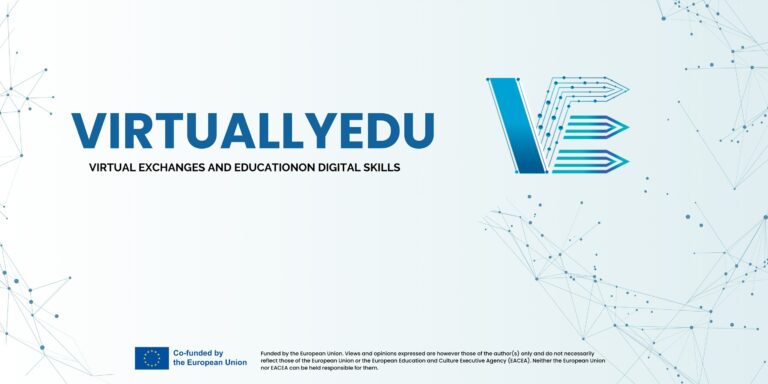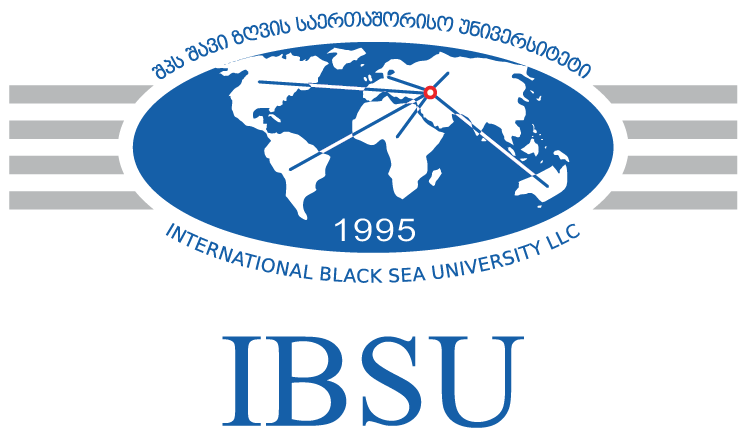News

- 31/03/2025
Transforming Education in Georgia: How VIRTUALLYEDU Advances Digital Literacy and Non-Formal Learning
The VIRTUALLYEDU project has been instrumental in reshaping Georgia’s educational landscape, marking a critical step toward digitalization, fostering international collaboration, and championing non-formal education. By bridging the gap between traditional education and the demands of a digitally connected world, this groundbreaking initiative has sparked innovation and established cross-border partnerships, creating new learning opportunities for young Georgians aged 18 to 30, particularly those in geographically isolated areas.
A New Era of Digital Literacy
In the digital age, equipping students and educators with robust digital literacy skills is essential. VIRTUALLYEDU addresses this critical need by providing tools and strategies to navigate, analyze, and assess information online responsibly. As Maksim Iavich, a mentor involved with the program, explains: “VirtuallyEDU goes beyond surface-level digital skills. It teaches students to question the sources of their information, assess its credibility, and consider the cultural perspectives it may reflect.”
This approach extends beyond basic technical training, integrating critical thinking, ethical technology use, and intercultural understanding into its curriculum. Through workshops, cross-border projects, and interactive group discussions, VIRTUALLYEDU fosters an environment where students not only develop technical skills but also cultivate respect for cultural diversity and global perspectives.
Liene Metreveli, International Project Manager of the Association “Georgian Youth for Europe,” representing one of the beneficiaries of this project, highlights its transformative nature: “The VIRTUALLYEDU project provides an incredible opportunity to connect with people from diverse cultures, broadening young people’s horizons. Through virtual tools, participants gain valuable knowledge and apply it to real-life scenarios. These workshops not only introduce new concepts but also teach essential collaboration skills. Participants improve their ability to work effectively with others, a skill that will greatly benefit them in their future job searches. Additionally, they build confidence in using digital tools and engaging in online teamwork.”
Personalizing Digital Transformation
Mentors like Maksim Iavich play a pivotal role in the project’s success. They offer tailored guidance and personalized advice on topics ranging from cybersecurity basics to advanced digital research techniques. This mentorship deepens students’ understanding of digital literacy, helping them explore its broader ethical and practical implications. As Iavich notes, “Our goal as mentors is to guide students in developing a lifelong curiosity and respect for digital tools. This isn’t just about preparing them for today’s digital landscape but about equipping them with skills and mindsets that will serve them well into the future.”
Lizi Lagirvandze, a participant in the first VIRTUALLYEDU online exchange and a graduate of the vocational education program for computer networks and systems at Shota Meskhia Zugdidi State University, is also an internally displaced person (IDP) from Abkhazia, a region of Georgia currently occupied by Russia. She states: “This project was a great opportunity for me to develop my digital skills. I’ve learned so many new things from this project, such as how to protect networks, systems, and programs from digital attacks, which was also very interesting to me. What’s also important is that I met many new people and had the chance to work with them and discuss various topics. This was a really interesting experience, and it’s great that we have the opportunity to attend courses virtually.”
Expanding Horizons: The Next Phase
Looking ahead, the VIRTUALLYEDU project is poised to build on its success and expand its impact. The upcoming phase will feature a second round of virtual exchanges, offering new learning and collaboration opportunities. Topics such as Multi-Literacy, Multimodality, Cybersecurity, and combating Digital Hate Speech will take center stage, further enhancing the integration of non-formal education. These initiatives aim to deepen participants’ understanding of contemporary global issues, equipping them with the tools to address these challenges and bridging the gap between academic knowledge and practical application.
By continuing to prioritize innovation, inclusivity, and collaboration, the VIRTUALLYEDU project is set to remain a transformative force in Georgia’s educational ecosystem.
For more information, please contact the following Georgian project partners:
- Association “Georgian Youth for Europe” | georgianyouth@gmail.com
- International Black Sea University | delara.lajvardi@ibsu.edu.ge
- Caucasus University | akapanadze@cu.edu.ge
These organizations are key collaborators in the VIRTUALLYEDU project, contributing their expertise and resources to ensure its success across Georgia.
